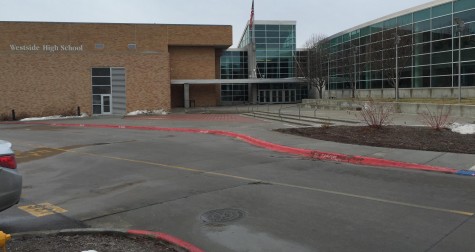Your donation will support the student journalists of Omaha Westside High School. Your contribution will allow us to purchase equipment and cover our annual website hosting costs.
The state of the district budget
February 10, 2016
 As the district’s future is always on the minds of the board and Superintendent Blane McCann, the budget is one of the biggest issues. In recent years, Westside has faced issues with the budget, going back to the shortfall last year. The district has tried to find ways to counteract the shortfall they’ve seen, but this year there will be issues once again.
As the district’s future is always on the minds of the board and Superintendent Blane McCann, the budget is one of the biggest issues. In recent years, Westside has faced issues with the budget, going back to the shortfall last year. The district has tried to find ways to counteract the shortfall they’ve seen, but this year there will be issues once again.
On Monday Feb. 1, McCann held a meeting to give Westside high school teachers an update on the budget. His main focus was that the district isn’t spending too much, there’s not enough revenue coming in, which is out of the district’s control.
“One of the big reasons that we have the revenue issues is our property values have remained pretty constant since 2009,” McCann said. “They’ve remained flat, which means we’re not getting any increase in revenue through that.”
Along with property values remaining stagnant, the switch from option enrollment to open enrollment has resulted in a big loss in revenue. Open enrollment is funded like a resident student, so there’s no extra money coming in. Option enrollment is a statewide program which is funded at a higher rate.
“As we graduate an option enrollment class and bring in an open enrollment class, I lose $1.1 million in revenue,” McCann said. “Back in the hay day, we would probably bring in 15 million dollars in option enrollment and next year we’re only bringing in 6.1 [million].”
To help, the district cut out $3.5 million in the budget for this year, mostly in non-salary expenses. Yet, it’s still not enough.
McCann outlined where these expenses are going. 80% of all expenses in the district are towards staff. This includes salaries, healthcare, benefits, etc. The other 20% is on things such as utilities, technology, supplies, transportation, etc.
“What we’ll try to do through this budget is protect the classroom,” McCann said. “We don’t class sizes to go up dramatically or anything like that.”
One of the largest growing expenses, McCann found, is transportation. This cost has gone up to 3 million dollars within the past three years. However, the district has been looking to decrease transportation costs by revamping routes within the two-county Learning Community and improving the efficiency of the district’s internal transportation.
According to McCann there are four options to help raise money for the district: protecting the value of commercial property in the district, (which Westside doesn’t control), raising outside funds, seek change in state legislation, or work to adjust the common levy through the Learning Community.
In regards to legislation, McCann has been working to get a bill passed to help increase funding.
“There’s two bills right now in the legislature, both of them go back to option enrollment as a statewide program and eliminate open enrollment,” McCann said. “The difference between the two is how to fund kids in poverty. Our bill talks about an extreme poverty adjustment for any district with 40% or higher free students. They would get another per pupil allocation to increase funding for those students.”
The other bill would give a 5% increase in funding for joining a learning community achiever program. The drawback McCann sees in this bill is that it only affects the learning community, not statewide like the one McCann is working on.
When it comes to the levy, McCann has toyed with the idea of increasing the money allotted through the learning community. Right now each district takes up to $1.05 per $100 valuation on property in the district. 95 cents goes to the learning community pool and 10 cents goes directly to the school. Westside passed a 10 cent override in 2012, which gave an extra 10 cents on top of the 10 already allotted. With another override coming in 2017, McCann has thought about trying to increase the override, but hasn’t made a decision.
At this point, the district knows where they stand on expenses and revenue. McCann doesn’t want to cut expenses too much, because he wants to stress the value a Westside education can bring students.
The best option is to increase the revenue so the district doesn’t face another shortfall.

